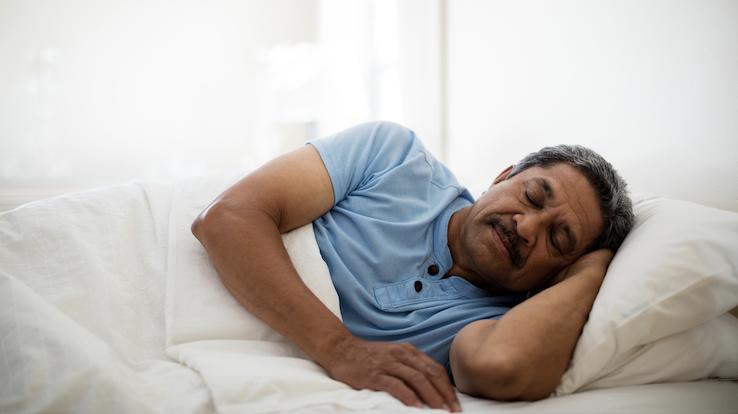Something Thats So Bad Its Bad Again

Many people oversleep now and then — and there's nothing wrong with sleeping in occasionally. But chronic oversleeping (also called hypersomnia) is linked to several health conditions. So if you regularly sleep 10 to 12 hours or more per night, you may want to ask your doctor if this could be a sign of a health problem. Learn about the causes of chronic oversleeping, related health problems and ways to build a healthier sleep pattern.

Hypersomnia means that you're regularly sleeping 10 to 12 hours a night or more, but you're still feeling tired during the day. You may have hypersomnia if you:
- Sleep too long at night (more than 10 hours)
- Feel very groggy when you wake up and very sleepy during the day
- Need to take naps during the day — but still feel tired afterwards
- Take naps at inappropriate times, like during work or meals
What Causes Oversleeping?

One common cause of oversleeping is sleep apnea — a condition where your breathing stops and starts again repeatedly throughout the night. This breathing problem disturbs your sleep patterns and leads to oversleeping and daytime sleepiness.
Depression is another common cause of oversleeping. Alcohol and drug use can also cause oversleeping — and drowsiness is a common side effect of many medicines.
Sometimes, there's no medical cause for oversleeping. Some people may just need more sleep than others or enjoy sleeping longer at night.
Is Oversleeping Bad for You?

The relationship between oversleeping and health problems isn't always clear. Oversleeping can be a symptom of an underlying health problem, but more research is needed to find out whether oversleeping causes or raises your risk for certain health problems.
For example, people who regularly oversleep seem to have a higher risk for diabetes, heart disease and obesity. But it's not clear whether or how oversleeping may cause these problems.
Lack of sleep and disturbed sleep are also linked to health problems. So if you're regularly oversleeping or you have trouble falling asleep or staying asleep, talk with your doctor.
How to Stop Oversleeping

Experts recommend that adults sleep about seven to nine hours per night. Anything over that is considered oversleeping. It's fine to get a bit more sleep from time to time — but if you're oversleeping regularly, you can take steps to build a healthier sleep routine.
- Keep a regular sleep schedule. A regular sleep routine can help your body sleep and wake when it's supposed to. Sleeping in on weekends can be relaxing, but sticking to the same bedtime and wake time may be better if you have sleep problems.
- Set an alarm — and resist the urge to snooze.It may seem obvious, but regularly getting up with the same alarm can help get your sleep on track. If hitting the snooze button is very tempting, try placing your alarm clock across the room.
- Avoid napping during the day. Napping during the day can make it harder to fall asleep at night and lead to oversleeping.
- See your doctor — or go to a sleep specialist. Some sleep problems need treatment from a doctor. Your doctor may also refer you to a specialist to help find out what's causing your sleep problem and how to fix it.
Resource Links:
- "The Interlinked Rising Epidemic of Insufficient Sleep and Diabetes Mellitus" via Healthcare (Basel)
- "Sleep Disorders" via American Journal of Medicine
- "Sleep, Health, and Society" via Sleep Medicine Clinics
- "Depression and Sleep" via International Journal of Molecular Sciences
- "Obesity and Sleep Disturbance: The Chicken or the Egg?" via Critical Reviews in Food Science and Nutrition
- "Sleep and Cardio-Metabolic Disease" via Current Cardiology Reports
renfroecomfordery.blogspot.com
Source: https://www.symptomfind.com/healthy-living/is-oversleeping-bad-for-health?utm_content=params%3Ao%3D740013%26ad%3DdirN%26qo%3DserpIndex

0 Response to "Something Thats So Bad Its Bad Again"
Post a Comment